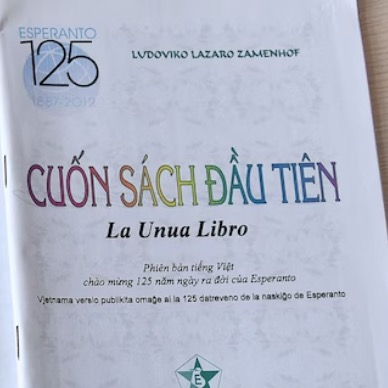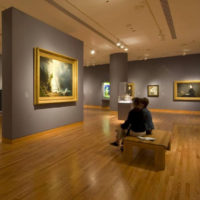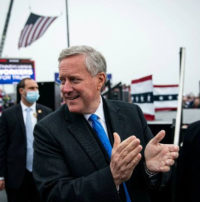AJ Four Ways:
Text Only (by date) | headlines only
- Netflix’s Big Time Bet On Streaming Live Sports
The stakes are high. WrestleMania, which began in 1985, is being treated as a litmus test – not just for WWE’s global expansion, but for Netflix’s potential move into live sports. – BBC
- What Happens To Our Culture When Hobbies Get Too Expensive
Hobby inflation, understood in this light, is about much more than price hikes: It’s about the shrinking and possible disappearance of opportunities for people from different backgrounds to get to know one another. – The Atlantic
- Coming To Terms With Richard Serra
Over the past half century the art history industry has produced reams of interpretation, incorporating no shortage of words by Serra himself. The author of work so totally laconic has set the terms of its understanding as if the death of the author bypassed him entirely. – N + One
- How “Blockbusters” Degraded Hollywood’s Soul
I think Hollywood used to propose itself as a place where artists and creative people could sustain themselves, perhaps even strike it rich, and that’s gone. The loss of that idea is … incalculable. – Los Angeles Times
- A Mathematical Model To Better Understand Language?
By thinking of language as a mathematical category, Tai-Danae Bradley‘s been able to apply established tools to study it and glean new insights. Linguists hope her model can help them to prove certain theories about how grammar and meaning emerge from strings of words, and to identify how AI-generated text differs from human language. – Quanta
- Study Literature? What It Means
As the English degree craters, and the idea of the university itself is under assault in the United States and elsewhere, those of us who remain interested in literate culture are sensing in its decline some correlation with the current apoplexy, if not direct causation. – 3 Quarks Daily
- So What Comes After DEI?
Conservatives have painted D.E.I. as a uniform set of programs, ideas, and ideologies. In reality, the term encompasses a wide-ranging set of practices. Still, D.E.I. spaces often share certain analytic frameworks, usually centering on questions of justice. – The New Yorker
- Books Have “No Economic Value” Claims Meta
Meta cited an expert witness who downplayed the books’ individual importance, averring that a single book adjusted its LLM’s performance “by less than 0.06 percent on industry standard benchmarks, a meaningless change no different from noise.” Thus there’s no market in paying authors to use their copyrighted works, Meta says. – Futurism
- Will Ryan Coogler’s Movie ‘Sinners’ End The Studio System?
“Directors owning their own movies is the opposite of business as usual — and to studios, cause for freaking out. According to senior executives at rival studios, the Sinners deal sets a ‘very dangerous’ precedent.” – Vulture
- Are Blockbusters A ‘Fascist’ Turn For Hollywood?
This author thinks so: “When you stop making middle-class movies — movies with a moderate budget, as opposed to ones made on a shoestring or ones that cost $200 million — you’re hollowing out a middle class of people who make them.” – Los Angeles Times (MSN)
- The Book That Transformed How We See Ballet
Alexey Brodovitch’s Ballet gets an 80th anniversary reprint. He “intended to foreground shape, blur, contrast, gesture and motion — the atmosphere of dance — in the photographs. ‘The photograph is not only a pictorial report,’ Brodovitch said. ‘It is also a psychological report.’” – The New York Times
- British Authors Protest Zuckerberg’s Taking Of Their Books For Generative AI
“Earlier this month, a group of protesters gathered outside the London headquarters of Meta, the parent company of Facebook, Instagram and WhatsApp. They were demonstrating over the company’s use of millions of pirated books and research papers to feed their family of generative AI models.” – The Guardian (UK)
- Van Gogh’s Final Painting Is Causing Trouble In This Idyllic French Village
“The continued fight over Van Gogh’s tree roots has cast a pall over what is usually a celebratory season in Auvers, population 7,000, where art tourism is a big business that heats up in the spring.” – The New York Times
- Why New York’s Parking Lots Are Stuffed To The Brim And Beyond
It’s the food trucks. Their owners or renters are gone, or in hiding, never opening their doors. In this version of the Big Apple, “the usual recourse to a quick, tasty and cheap snack is now an endangered option.” – El País
- The Naval Academy Was Supposed To Host A Lecture On Idea Censorship And Reading Fearlessly
Then the Academy, apparently not fearless, censored the lecture. “I did not want to cause them trouble. I did, however, feel it was essential to make the point that the pursuit of wisdom is impossible without engaging with (and challenging) uncomfortable ideas.” – The New York Times
- The US Knew It Needed Public Housing, But The People Building It Often Didn’t Like It
Despite the decades of neglect, when a new “Chicago museum’s leadership was pursuing oral histories of public housing, they found other narratives as well — of community, empowerment and self-sufficiency.” – Washington Post (MSN)
- Buying A Book, Novelist Kiley Reid Says, Isn’t Going To Fix Racism
“Theme always comes last. I never say, I want to write about capitalism or women. What gets me into writing is always this tiny moment of someone saying something that’s stuck with me.” – The Guardian (UK)
- An Updated Timeline Of The Harvey Weinstein Trials
As jury selection begins in the newest trial, here’s a timeline of all of the trials and appeals so far. – NPR
- David Cronenberg Found His Will To Live By Making A Movie About Death
“During the pandemic, when I was watching a lot of old movies, it occurred to me that every person who worked on this movie is dead now. The director, the producers, the actors — they’re all dead, and I’m watching their ghosts.” – The New York Times
- Turns Out UK Taxpayers Gave Nearly Ninety Million Pounds Toward A Recent Jurassic Park Movie
It’s easier to make a profit when the people of the country where you film underwrite the whole thing, no? At least it’s transparent: “Studios set up separate companies for movies made in the UK to show more than 10% of the total cost was spent here.” – The Guardian (UK)
- Podcasts Mostly Have To Turn Into Brands To Make Money
That means podcast-themed backpacks, toys – and cruises. Indeed, one “chief content officer” says, “We’re trying to take a Hollywood-style approach to IP-building and apply it to podcasting.” – Fast Company
- Artists In The United States Survived A Rabidly Anti-Art Government Before
And here’s how to do it again. – The Conversation
- Helping Cinemas Survive Might Mean Moving TV Series To The Big Screen
For instance, this TV series about the life of Jesus is doing numbers, as in, big numbers. – Los Angeles Times (MSN)
- Should Gaudi Be Seen As A Saint?
Even if you’re not a believer, the answer is probably a yes. “Gaudí’s mission was to find spiritual meaning in a world transformed by industry and machines.” – The Observer (UK)
- Medieval Monks Did What?
In the Ireland of a thousand years ago, monks fleeing the Vikings spread their beautifully decorated version of Christianity to Europe. Some of those manuscripts survived an intensely brutal, violent millennium. – The Guardian (UK)
- The Thing About ‘Black Mirror’ Is, It’s Not So Fictiony Anymore
“Every episode serves in part as a warning about how technological advancement run rampant will lead us, often willingly, toward a lonely, disorienting and dangerous future.” Yeah, so, yikes. – The New York Times
- When Hobbies Like Knitting And Fishing Become Too Expensive, We All Lose
When hobby inflation takes over, we lose community across all kinds of lines: “Hobbies can produce communities where, because the hobby itself takes top priority, the participants’ social or cultural differences become less important.” – The Atlantic
- How One Talk Show Absolutely Nails It On TikTok
“Before taking the stage, guests make their way down a hallway as members of the show’s staff serenade them with a complicated, customized hype song, sung entirely from memory.” Almost all of the clips go viral. Who cares what they say on stage? – The New York Times
- Once You’ve Begun Writing, When Do You Stop?
Poet and memoirist Maggie Smith says, “You have to enjoy the process more than you enjoy patting yourself on the back about having a product that you created. I mean, the most fun is the making of the thing.” – Slate
- After A Movie That Lionized Him, The Guy Who Popularized Tetris Wants To Tell The Truth
The movie, described by one outlet as The Big Short meets The Bridge of Spies, was a bit, let’s say, intensified. But the real guy’s “story is especially notable as Tetris continues to thrive.” – The Verge
- Making Opera Local Again
“If you want to find a creative space, it doesn’t necessarily need to be in Manhattan or Brooklyn. … It’s where you are.” – The New York Times
- How Trump And His People Want To Capture The History Of The United States
“The president has gone beyond rhetoric, moving to challenge or seize control of history-related federal cultural institutions including the Smithsonian, the National Park Service and the National Endowment for the Humanities.” – The New York Times
- When An AI Chatbot Simply Makes Up A Company Policy, Things Can Go Very Wrong
This seems fine: “Instead of admitting uncertainty, AI models often prioritize creating plausible, confident responses, even when that means manufacturing information from scratch.” – Wired
- The Important Twins Of Recent Media
“Eer since people have feared the idea of doppelgängers, twins have been featured in hundreds of stories over the years.” – Variety
- The Life Of An Author Can Be, Well, Imaginative
Author Sayaka Murata: “Ever since I was a child, I’ve had 30 or 40 imaginary friends who live on a different star or planet with whom I have shared love and sexual experiences.” – The Guardian (UK)





